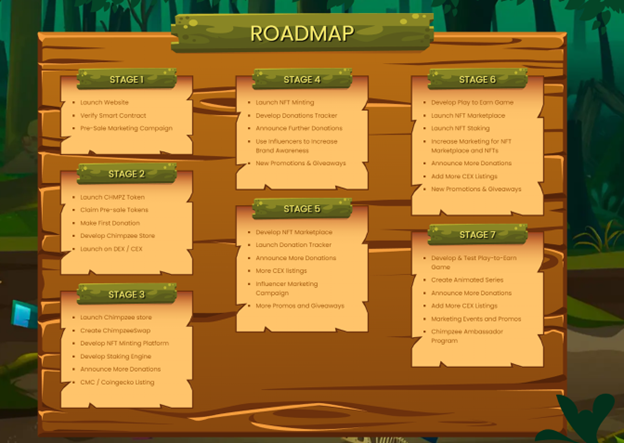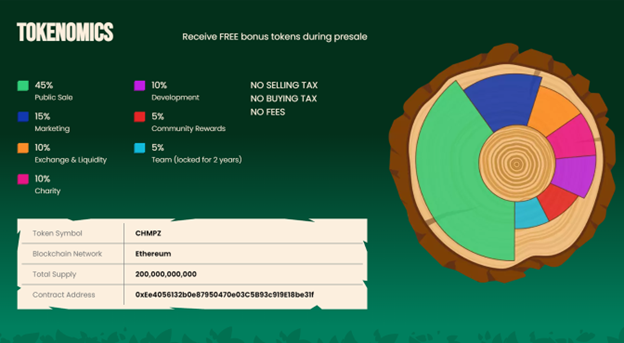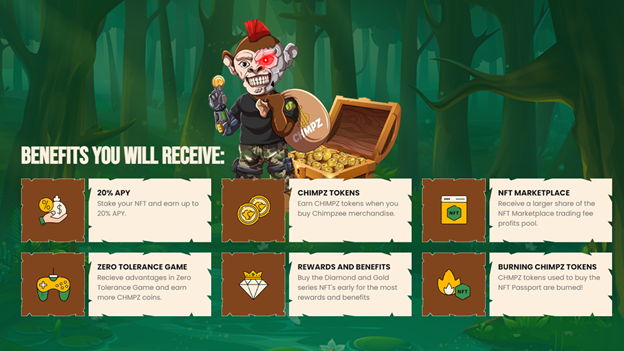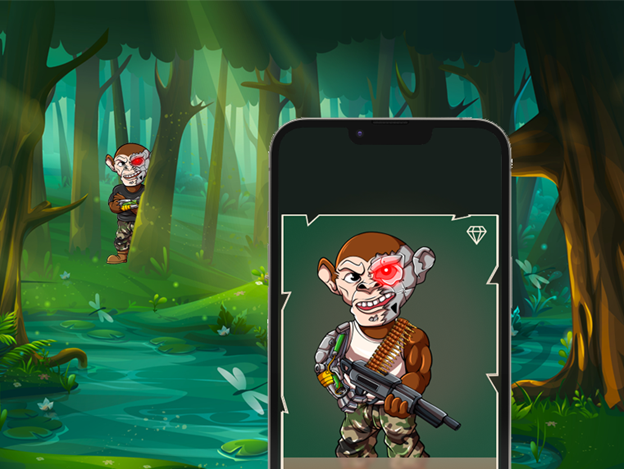Reason to trust

How Our News is Made
Strict editorial policy that focuses on accuracy, relevance, and impartiality
Ad discliamer
Morbi pretium leo et nisl aliquam mollis. Quisque arcu lorem, ultricies quis pellentesque nec, ullamcorper eu odio.
Gone are the days when NFTs were considered a threat to the environment. With the emergence of side chains and most blockchains moving to energy-efficient consensus mechanisms, the allegation has lost its validity. Today, NFTs are fast becoming a tool for environmental conservation. Chimpzee is a great example. The project’s NFT-funded wildlife conservation initiative allows users to contribute to conservation and climate action while earning a passive income.
The new fundraising model doesn’t just benefit from the transparency of blockchain transactions, but also incentivizes people to contribute to the mission. Here is a closer look at Chimpzee and how it brings more energy and efficiency to wildlife conservation.
An introduction to the Chimpzee model of wildlife conservation
Chimpzee is a wildlife conservation project that allows participants to earn passive income while saving animals and fighting climate change. It aims to address the rapid climate change and human invasion of eco-sensitive areas by unlocking the potential of blockchain technology. This is made possible by Chimpzee NFT Passports, which give multifold benefits and rewards to holders, in recognition of their financial support.
Chimpzee allocates 10% of its token supply and a share of its profits to organizations that align with its environmental mission. Crypto incentivization boosts the efficiency and effectiveness of the model. The Chimpzee ecosystem has three pillars – the Chimpzee Shop, Chimpzee NFT Marketplace, and Chimpzee Zero Tolerance Game. It makes use of the latest Web3 business models like Play2Earn, Shop2Earn, and Trade2Earn to bring more traffic to the initiative and improve the retention rate.
Chimpzee has joined forces with initiatives like TheGivingBlock (the go-to solution for nonprofits seeking cryptocurrency donations), OneTreePlanted (focused on saving forests and planting trees), and WILD foundation (saving animals around the world since 1974).
CHMPZ serves as the native cryptocurrency of the Chimpzee ecosystem.
NFTs and wildlife conservation
For most people, NFTs are just newfangled artworks. For others, it’s a quick and shallow money-making scheme. But it’s more than what popular media makes it out to be. The decentralized blockchain foundation of NFTs (non-fungible tokens) allows them to track the underlying asset’s ownership and transfer of ownership transparently. Here, the smart contract does the job of middlemen and agencies, thus slashing the time and cost involved.
Given that wildlife conservation and climate action are global initiatives, they need participation from across borders. As a result, they have to face the inherent limitations of traditional fundraising, which relies on centralized systems. It lacks transparency, accountability, and efficiency. Let’s face it. We need more than just random emails with cute pictures of baby animals to donate to environmental organizations. Pictures of baby animals certainly help. But how do we know our money is being used wisely? How do we know the initiatives will follow through?
These are serious questions to consider when sending your money online to a wildlife initiative that you can’t walk into whenever you want to. NFTs will solve the problem. They will allow you to track your funds from the comfort of your home. The transactions recorded on a public blockchain are immutable and open for verification.
Why and how does Chimpzee incentivize wildlife conservation?
The incentivization of wildlife conservation and climate change sounds fancy. Shouldn’t people donate to these causes because they want to save the planet? And not because they get rewards in return? Sure, in an ideal world that is how things should be. But if we wait for everyone to realize the climate threat, it would be too late to reverse the damages. Statistics tell us how grave the situation is.
The average global land and ocean temperatures have risen by 0.08 degrees Celsius every decade since 1880, according to the Annual Climate Report. One million animal and plant species are at risk of extinction due to human activities, according to the World Economic Forum.
There are more numbers that will startle you. But you get the drift. The gradual wipe-out of flora and fauna across the world aggravates climate change and vice versa. We need to make conscious efforts to slow down the change and heal the planet. Sadly, few people contribute money or efforts to a threat that they imagine being distant. Here is where financial and social incentivization comes into play.

Chimpzee uses NFTs to build global awareness around its environmental initiatives. The funds secured from their sales go to credible organizations that help save endangered species and fight deforestation. To improve motivation and, in turn, participation, it gives passive income to NFT owners.
The Chimpzee ecosystem
Chimpzee has integrated the latest Web3 business models like Shop2Earn, Trade2Earn, and Play2Earn to strengthen the efficiency of its products. Here is how they make a difference.
Shop2Earn – The Chimpzee Store
- Rewards users with CHMPZ coins every time they buy gear and accessories from the Chimpzee store
- Use the coins to get discounts or special offers within the ecosystem.
- A percentage of the profits from the platform are donated to organizations that focus on conservation and climate action.
- Chimpzee NFT Passport holders are eligible for special discounts and promotions.
Trade2Earn – The Chimpzee NFT Marketplace
- Stands out with a new profit-sharing system.
- Distributes a share of the trading fee profits with users who hold a Chimpzee NFT Passport or actively trade on the marketplace.
- Chimpzee NFT Passport owners enjoy special advantages and benefits like a larger share of the trading fees profit pool.
- Focus on NFTs launched by environmental initiatives. (Projects will be carefully assessed to reduce fraud and imitation.)
Play2Earn – The Zero Tolerance Game
- The main entertainment juncture of Chimpzee.
- Rewards users with CHMPZ coins when they reach certain milestones, providing an extra source of income.
- The name reveals the initiative’s “zero tolerance” for abuses against nature and our environment.
- Chimpzee NFT Passport holders have a competitive edge in the game, in honor of their early support.

How to participate in Chimpzee’s wildlife conservation program?
The best way to join Chimpzee’s wildlife conservation program is by investing in its NFT passports. They will give you many benefits in the ecosystem, including a wide range of discounts. Since they are not available yet, you can join the CHMPZ presale which is live and receive free bonus coins up to 100%. CHMPZ presale participants will get allocations and benefits in the NFT presale as well. The earlier you join the CHMPZ presale, the higher the discounts. For example, Chimpzee Diamond NFT Passports, which come with staking APY at 20%, are reserved for first-stage presale buyers only. Moreover, the discounts are higher in the early stages.
Chimpzee is considered one of the best NFT projects this year, owing to its high market relevance and global use cases. It also opens up excellent investment opportunities as CHMPZ coins used to buy the Chimpzee NFT Passports will be burned and taken out of circulation, with a burn potential of up to 10% of the total circulating supply.

Disclaimer: This is a paid release. The statements, views and opinions expressed in this column are solely those of the content provider and do not necessarily represent those of NewsBTC. NewsBTC does not guarantee the accuracy or timeliness of information available in such content. Do your research and invest at your own risk.



























